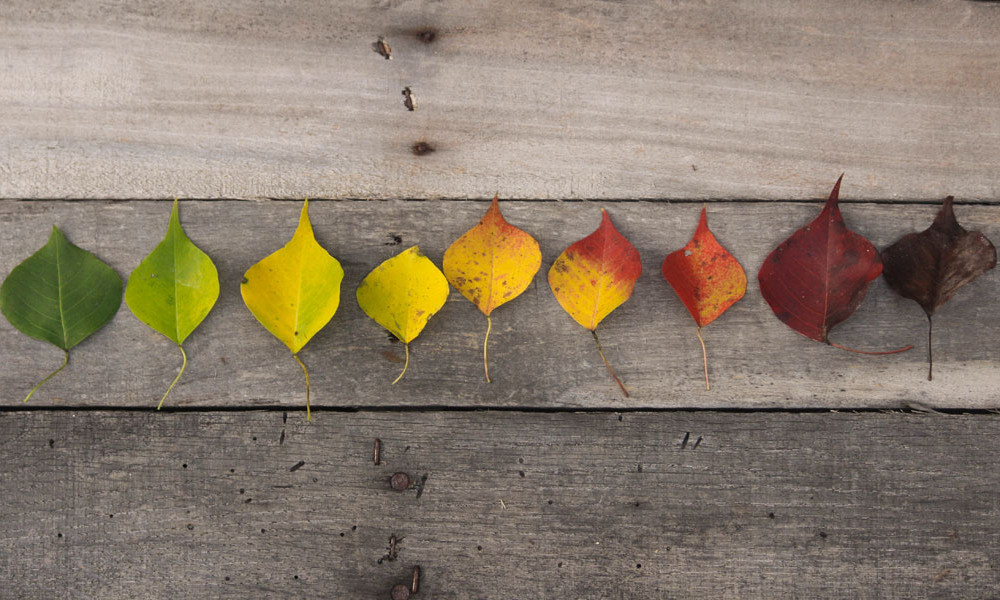
Autumn Music: 5 Pop/Rock Albums That Sound Like Fall
When listening to music, I often choose something that will be evocative of my environment: when it’s raining, I want rainy music, etc. And since I have a melancholy streak a mile wide, autumnal music tops my list.
As the colors change I seek sounds that emit a subdued, warm glow, the aural equivalent of sitting in front of a crackling fire; soft, round edges, manifested as organic, woody and resonant instrumentation: piano, chiming acoustic guitar, cello, flute, the breathy quality of a Leslie cabinet or a slow tremolo. But autumn’s most fundamentally a time of dying, one final burst of vibrance before disintegration, so autumnal music is also reflective of things past and passing. That’s not to imply that it necessarily wallows in misery; it’s simply conscious that nothing lasts, and concerned with making the most of what time may be left.
Here are five of my favorite autumnal albums; I’ve got many more, but they can wait until next year. If you’ve got any you’d like to share, let me know about them in the comments.
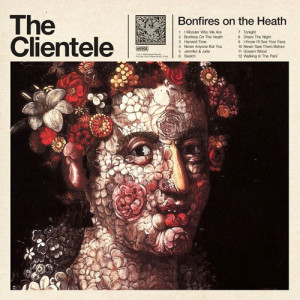 The Clientele, Bonfires On The Heath (2009)
The Clientele, Bonfires On The Heath (2009)
One could find traces of autumn on almost any Clientele record; it’s somehow inherent in their gauzy, lightly-psychedelic sound. But even if the title track didn’t include the lyric “Late October, sunlight in the wood,” this album would still conjure precisely that feeling for me… romantic, a bit lonely, comforting, quiet and contemplative at times, brisk and crunching like leaves beneath feet at others. It’s the epitome of everything I described in the introduction.
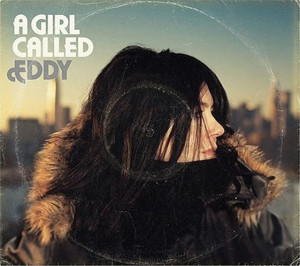 A Girl Called Eddy (2004)
A Girl Called Eddy (2004)
Full of heartbreak over lost love and the death of a parent, the lone album* by A Girl Called Eddy (the stage name of Erin Moran—and as anyone writing about her is obliged to point out, no, not the Happy Days actress) is a masterpiece. In lesser hands than those of Moran and producer Richard Hawley, the themes could have sunk it beneath the weight of its own melancholy. But the songs are so melodic, the (largely orchestral) arrangements so sympathetic—alternately somber and soaring but always achingly beautiful—that the end result is an instantly timeless classic that should appeal to anyone who loves the craft of Burt Bacharach, the yearning intimacy of Dusty Springfield, and the poignance of chanson masters like Léo Ferré.
Moran had barely released anything prior to this album—one EP, most of the songs on which were re-recorded for this LP, and contributions to trip-hop collective Leomoon’s self-titled 1999 album—and nothing since. She hasn’t retired per se; she’s still writing, but with no particular sense of urgency. In a 2014 interview she admitted her contentedness with having given the world one perfect album if she never gets around to another, and I agree.
*Some years after this post was written, Moran has finally begun releasing new music again, both as A Girl Called Eddy and in collaboration with Mehdi Zannad (aka FUGU) as The Last Detail.
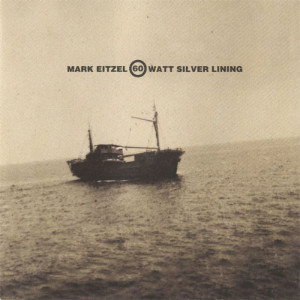 Mark Eitzel, 60 Watt Silver Lining (1996)
Mark Eitzel, 60 Watt Silver Lining (1996)
Like all of Eitzel’s work, these songs are populated with junkies, drunks, misfits, painful honesty, longing, romanticism, a strong sense of place, wry humor, self deprecation verging on loathing, self-destruction, desperation, passion, frustration and a firm conviction that love can make it all better.
His first studio-recorded solo album after the (temporary) disbanding of American Music Club is more of an evolution than a wild departure from their last couple of albums. At complete odds with the grunge & Britpop zeitgeist of the early ’90s, AMC had become more and more subdued; on his own, Eitzel doubled-down on the lack of musical aggression, largely abandoning much pretense of rock and roll in favor of an intimate subtlety that lies halfway between rock and jazz. These are still pop songs, but the acoustic instrumentation is closer to that of a small bebop combo—piano, double bass, drums, muted trumpet (courtesy of Mark Isham)—and the emphasis is on mood. There are no hard edges—even when the album rocks, the textures are mellow—and Eitzel’s voice is as warm and inviting as hot, buttered toast, displaying a complete confidence in quietude that’s not often seen in rock and roll singers.
Buy it: Amazon
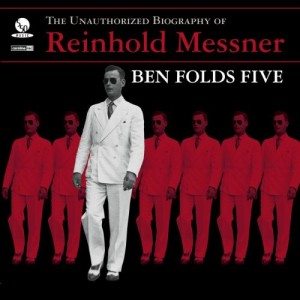 Ben Folds Five, The Unauthorized Biography Of Reinhold Messner (1999)
Ben Folds Five, The Unauthorized Biography Of Reinhold Messner (1999)
I’ve always been struck by Ben Folds Five’s rapid progression—across only three albums in four years—from snotty “punk rock for sissies” to the sonic sophistication and unflinching self-examination found here. Their first album took a fair amount of glee in critiquing everyone else—the ex-lover, the blowhard, hipster culture. By this album the lens had turned almost entirely inward; the narrator gradually realized that not only wasn’t he quite as special as he’d believed, but that he probably deserved the harshest criticism of all.
Reinhold Messner is the sound of realizations that often arrive with adulthood, mostly variations of “You fucked up.” You were selfish. You hurt people who cared, and they don’t owe you forgiveness. You spent your energies on the most meaningless crap. You’re too weak to come to terms with what you really are. The body you took for granted is starting to falter. You will die. You wasted the chances you had, and your possibilities for life are in the rearview mirror. Time is almost up.
It’s scary stuff, and so unsparingly observed that the result is heartbreaking. But it’s also the most compassionate and moving of the early BF5 albums and, despite the seriousness of the subject matter, not without their usual irreverence; while serious, it manages not to take itself too seriously. Likewise, the music; where some artists might have taken the opportunity to launch into look-what-we-can-do flights of artistic self-importance, BF5 keeps everything grounded and sincere by sticking with their core rock arrangements (augmented with occasional strings and horns) and finding within that framework a broader emotional palette than they’d expressed before.
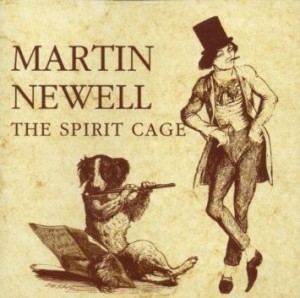 Martin Newell, The Spirit Cage (2000)
Martin Newell, The Spirit Cage (2000)
Mentions of autumn in the songs of Martin Newell/Cleaners From Venus are about as rare as indications from Morrissey that things aren’t going quite as well as they could be. If autumn’s not Newell’s favorite season, it’s at least the one whose imagery he chooses to evoke most often in his lyrics. What makes this album his most autumnal to me is the perspective of age. Recorded when he was in his late forties, at the same age I am now, the songs resonate for me in a way that they wouldn’t if I had fewer decades under my belt.
Whereas the Ben Folds Five album discussed above reacts to the cognizance of aging with trepidation and regret, Newell is at peace with transience. Small pleasures, passion, loss, sacrifice, death… in the long view it’s all beautiful and worth cherishing. He sings of his own departure in “My Funeral” with not just serenity but gusto, knowing it’s his last party: “My funeral will be good / spark up a fire in the deep green wood / wake up the neighborhood / cheer my soul away … One man gone, work goes on / my beer won’t drink itself, so you drink it for me.”
Autumn leaves photo by Heather Wilson Smith

I love A Girl Called Eddy. Beautiful album.
That’s actually the one that prompted the post; I won’t rest until I’m certain that everyone on the planet has heard it.
[…] Autumn Music: 5 Pop/Rock Albums That Sound Like Fall […]
[…] friends. Autumnal music is my favorite—I’ve previously made some recommendations here—and if I’ve hit the mark then this episode is the pop music equivalent of a pile of burning […]